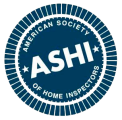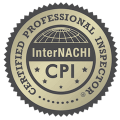Buying or selling a property is a significant transaction, and real estate agents know the importance of providing clients with accurate, detailed information to make informed decisions. A property inspection plays a crucial role in identifying potential issues that could impact a property’s value, safety, or livability. At Tri-State Property Inspections, we believe that when agents understand what inspectors look for, they are better prepared to guide clients through buying and selling. Here, we’ll outline the top five red flags real estate agents should know during a property inspection.
1. Foundation and Structural Issues
The foundation is the literal base of any building, and structural stability is paramount. Cracks in the foundation, uneven floors, or doors and windows that won’t close properly are all signs of possible foundational problems. While minor settlement cracks are often harmless, larger cracks, horizontal fractures, or those that appear more comprehensive at the top than the bottom may indicate serious issues.
Foundation repairs can be costly and may affect the property’s overall value. At Tri-State Property Inspections, our team carefully examines these signs to determine whether they are due to normal settling or a deeper structural problem. When agents understand this distinction, they can better advise their clients on what may be a manageable fix versus a potential deal-breaker.
2. Electrical Problems
A sound electrical system is vital for the safety of any property. Faulty wiring, outdated electrical panels, or DIY electrical work can pose significant safety risks, including the threat of electrical fires. During our inspections, we often encounter overloaded circuit panels, old knob-and-tube wiring, and ungrounded outlets—common issues that may not meet today’s safety standards.
For real estate agents, being aware of these red flags can prevent future liabilities and give clients peace of mind about their property’s safety. Sometimes, a simple update or minor repairs may be all that’s needed. However, significant electrical issues may require extensive rewiring, which can be costly and invasive. We recommend agents educate their clients about the potential risks and remediation costs associated with outdated or faulty electrical systems.
3. Roof and Attic Damage
A home’s roof is one of its most important lines of defense against the elements. Roof damage, whether from age, weather, or improper installation, can lead to water leaks, mold growth, and structural issues. Common red flags include missing or damaged shingles, sagging areas, signs of water stains, and improperly vented attics.
At Tri-State Property Inspections, we inspect the roof and attic space closely, checking for any damage that could compromise the home’s integrity. We look for signs of previous repairs, weak spots, or inadequate ventilation, which can contribute to the attic’s moisture buildup and mold growth. Agents should understand and discuss these potential concerns with their clients, helping buyers weigh the cost of repairs or roof replacement in their purchase decision.
4. Plumbing and Water Damage
If not addressed promptly, plumbing issues can lead to costly water damage. Common red flags in plumbing include leaky pipes, water stains on walls or ceilings, slow drainage, and water pressure issues. Older homes often need to find updated plumbing materials, like galvanized pipes, which are prone to corrosion and buildup, impacting water flow and quality.
Water damage, on the other hand, can indicate more profound issues. Stains on ceilings or walls, bubbling or peeling paint, and a musty smell in certain areas can all signal past or ongoing water damage. These issues may stem from plumbing leaks, poor drainage, or even roof damage, and they can lead to mold growth, which poses health risks and further damage. Real estate agents should know these signs, which can significantly affect the property’s value and appeal. We always encourage agents to communicate the importance of a thorough plumbing and water inspection to their clients.
5. HVAC and Environmental Concerns
Heating, ventilation, and air conditioning (HVAC) systems are essential for maintaining a comfortable living environment, especially in regions with extreme seasonal temperatures. Common red flags include outdated or malfunctioning units, poor airflow, and lack of maintenance records. Replacing or repairing HVAC systems can be a significant expense, so it’s crucial to identify these issues during the inspection process.
Environmental concerns such as mold, asbestos, or radon should be on every agent’s radar. Mold can grow in damp, poorly ventilated areas and pose health risks. Asbestos, typically found in older homes, can be hazardous if disturbed. Radon, a colorless, odorless gas, is another potential issue that may require mitigation if levels are high. Tri-State Property Inspections offers services to check for these environmental concerns, giving agents the information they need to advise their clients on potential health and safety risks.
Helping Real Estate Agents Guide Clients
Understanding these five red flags can help real estate agents prepare their clients for potential issues, facilitating smoother transactions and more informed decisions. At Tri-State Property Inspections, we pride ourselves on thorough, professional inspections that clarify the buying and selling process. Real estate agents can enhance their clients’ confidence and satisfaction by partnering with a trusted inspection service. For more information, visit our website at https://tri-statepropertyinspections.com/, and let us help you make every transaction as transparent and successful as possible.










